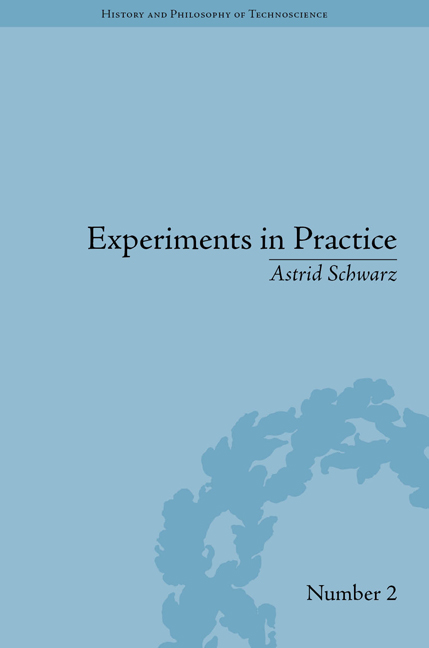Book contents
- Frontmatter
- CONTENTS
- List of Figures
- Introduction: Towards an Experimental Mode in Science, Society and Philosophy
- Part I Questioning the Scientific Method
- Part II Different Modes of Experimentation
- Part III Tirelessly Tinkering with Unruly Conditions
- Part IV Practising Experiments in a World of Environmental Concerns
- Conclusion: Experiments in Practice – the Work of Experiments
- Notes
- Works Cited
- Index
Conclusion: Experiments in Practice – the Work of Experiments
- Frontmatter
- CONTENTS
- List of Figures
- Introduction: Towards an Experimental Mode in Science, Society and Philosophy
- Part I Questioning the Scientific Method
- Part II Different Modes of Experimentation
- Part III Tirelessly Tinkering with Unruly Conditions
- Part IV Practising Experiments in a World of Environmental Concerns
- Conclusion: Experiments in Practice – the Work of Experiments
- Notes
- Works Cited
- Index
Summary
At first glance, the phrase ‘experiments in practice’ may appear to invoke connotations of recent widespread debates about the practice of scientific experiments. Most often such experiments are imagined to occur within the four walls of the science lab; however, they frequently attract even greater attention when they take place – whether more or less intentionally – beyond these walls, such as when chemicals, genetically modified organisms or new technologies are released in an uncontrolled environment. There is an ongoing debate in society about the moral and political implications of such experiments, about who benefits and who suffers as a result of them and, more generally, about the reliability or desirability of scientific knowledge generated this way.
Upon closer inspection, however, ‘experiments in practice’ may provoke questions relating to its semantic ambiguity and, in particular, about the meaning of ‘praxis’ contained in it: how are experiments ‘put into practice’ and what does this suggest for the experimental mode itself? It has been suggested here that probing the experimental mode means, in the first instance, identifying a twofold movement that might be described as (de)liberating the experiment. This refers, first, to the liberation of the scientific experiment from the lab: the move from a lab ideal towards a field ideal. In a second turn it refers also to the deliberation and institution (or establishing) of the social contract between science and society.
- Type
- Chapter
- Information
- Experiments in Practice , pp. 185 - 188Publisher: Pickering & ChattoFirst published in: 2014

